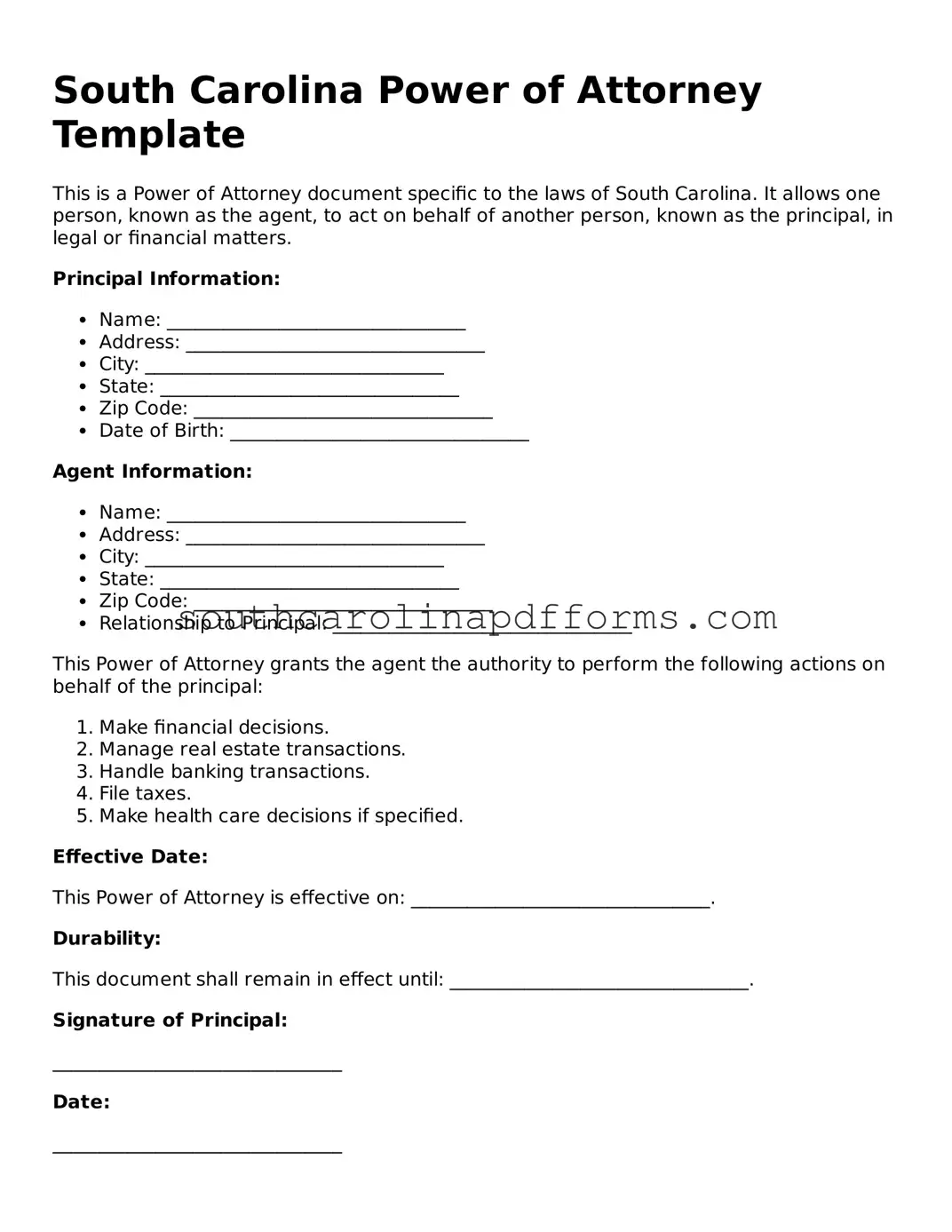In South Carolina, a Power of Attorney (POA) form serves as a vital legal document that empowers an individual, known as the "principal," to designate another person, referred to as the "agent" or "attorney-in-fact," to act on their behalf in a variety of matters. This form can cover a wide range of responsibilities, from managing financial affairs to making healthcare decisions, depending on how it is structured. One of the key aspects of the South Carolina Power of Attorney is that it can be tailored to meet specific needs, allowing the principal to grant broad authority or limit it to certain tasks. Additionally, the document must be signed and notarized to ensure its validity, providing an added layer of protection against potential misuse. Understanding the nuances of this form is crucial, as it not only facilitates important decision-making processes but also safeguards the principal's interests during times of incapacity or absence. Whether planning for the future or addressing immediate needs, knowing how to effectively utilize a Power of Attorney can empower individuals to maintain control over their affairs even when they cannot be present to manage them directly.
